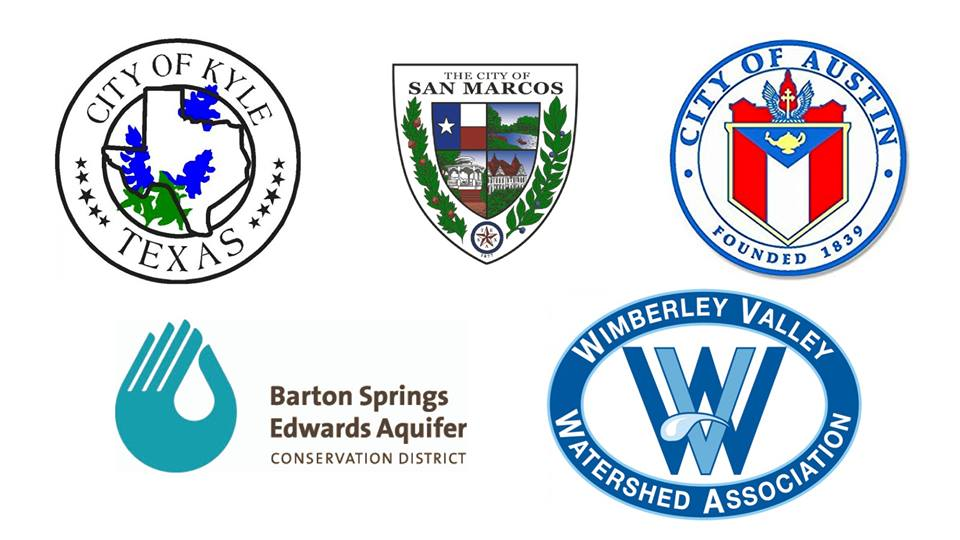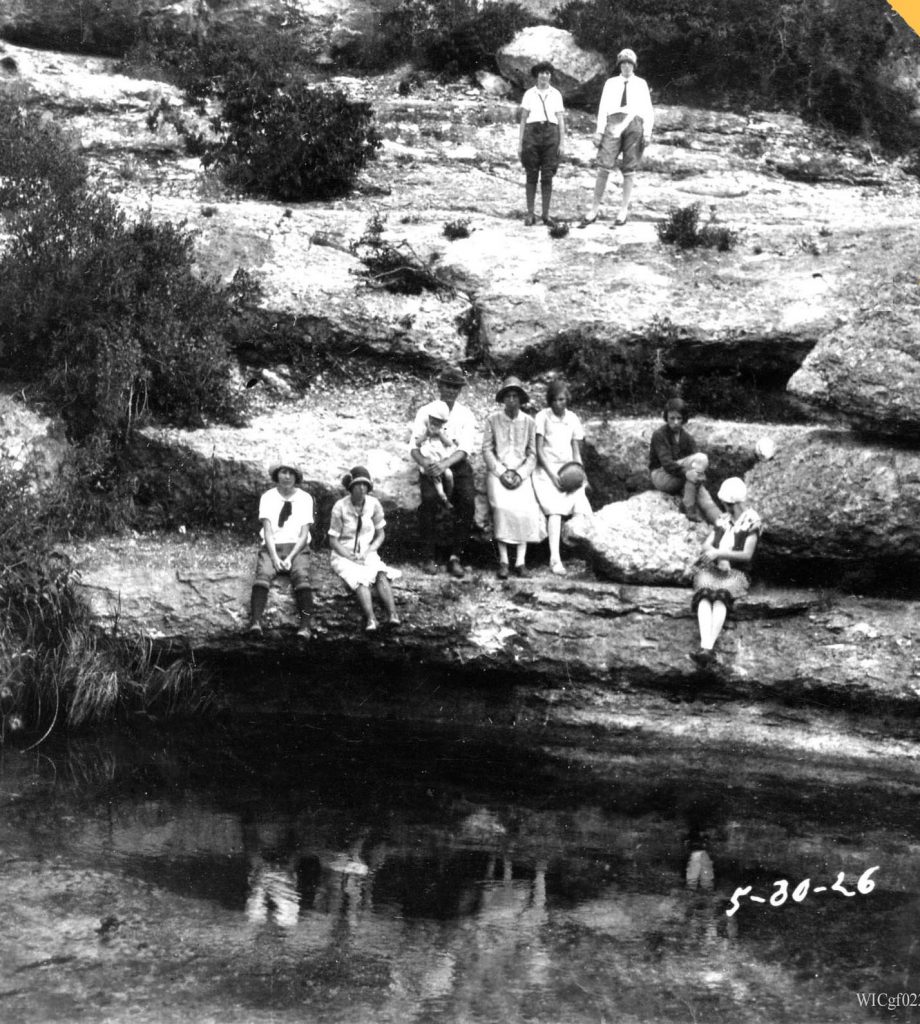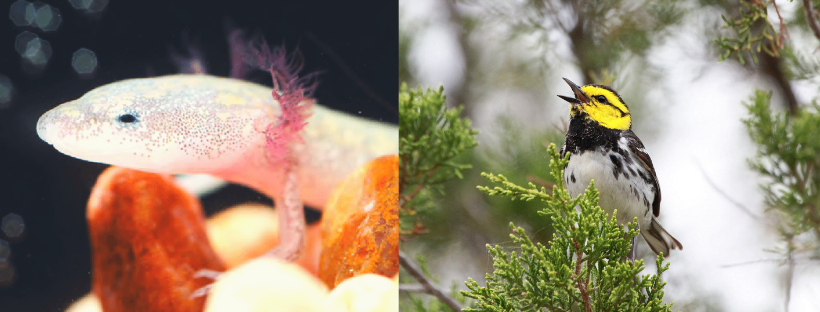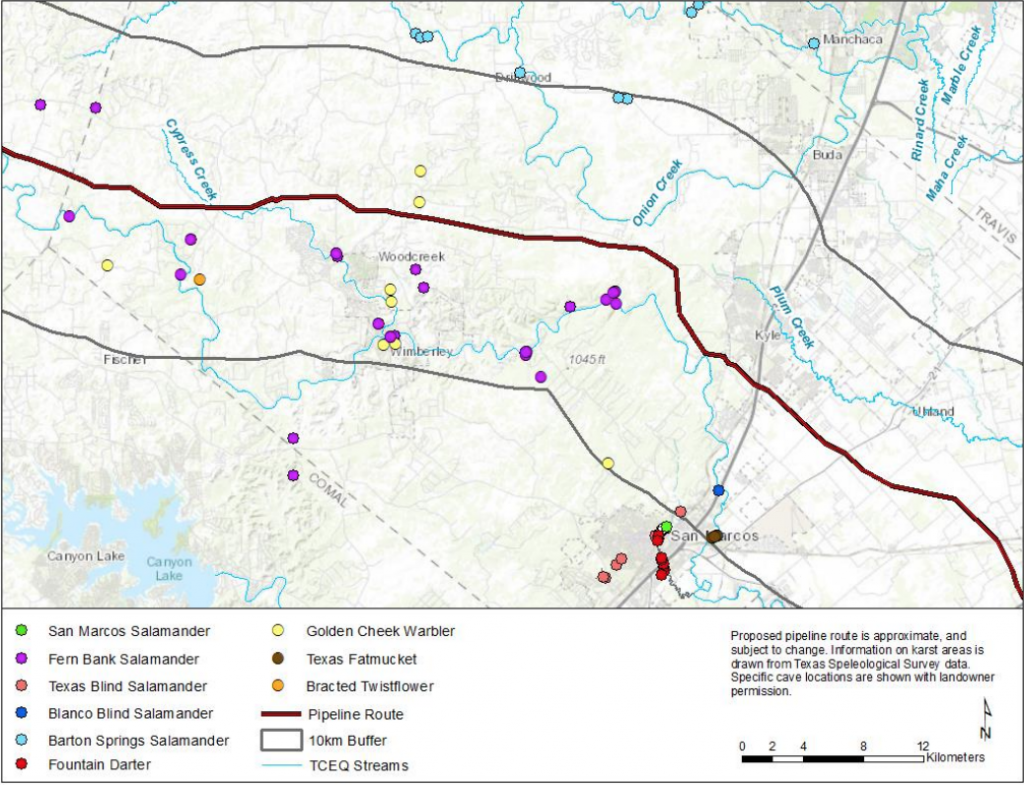
A coalition of Central Texas cities and conservation organizations are notifying the federal government that they will sue if it fails to hold Kinder Morgan’s Permian Highway Pipeline (PHP) project accountable to requirements outlined in the Endangered Species Act (ESA). The cities of Kyle, Austin, and San Marcos have joined with the Barton Springs Edwards Aquifer Conservation District and the Wimberley Valley Watershed Association to issue a notice of intent (NOI) to the United States Fish and Wildlife Service (USFWS) and U.S. Army Corps of Engineers (USACE) — a formal letter required prior to filing suit to enforce violations of the law.
“The WVWA is compelled to sign on to this letter. The Federal Government must hold Kinder Morgan and the Permian Highway Pipeline accountable. Kinder Morgan has to follow laws that protect our water and the aquifers. Over two million people rely on these aquifers every day for their drinking water. The Trinity and Edwards aquifers are home to eight endangered species that can only survive with the clean water flowing from these federally protected springs” said David Baker, Executive Director of the Wimberley Valley Watershed Association. “The Kinder Morgan proposed PHP, as currently routed through the Texas Hill Country will cross rivers, creeks, karst aquifer recharge zones, and the habitats of endangered species. The construction activities and the hydrocarbons in the pipeline threaten the health of Barton Springs, San Marcos Springs, Jacob’s Well and the groundwater drinking water supply for our region.”

The Wimberley Valley Watershed Association and many others believe that Kinder Morgan should have to do an Environmental Impact Study on the Permian Highway Pipeline route. The Houston company has avoided doing so because Texas state law does not require such diligence for intrastate pipelines.
This route crosses over the Edwards Aquifer and the Trinity Aquifer, which supply drinking water for over two million people. The construction process and any leak or explosion could cause irreparable damage to the sensitive endemic endangered species that exist in our unique underground ecosystem and nowhere else on Earth.
The pipeline will cut directly through the habitat of endangered species such as the Barton Springs Salamander, Golden-cheeked Warbler, and the Austin Blind Salamander, among others. All ESA-listed species are granted certain protections from such development under the ESA.

This is the second NOI issued from communities of interest along the PHP route in just three months. The concerns are similar to the one submitted over the summer, insofar as both NOIs raise legal violations concerning Kinder Morgan’s attempt to obtain a general permit from the USACE called a Nationwide 12 permit instead of seeking a more rigorous individual permit under the Clean Water Act.
These steps include obtaining a biological opinion from USFWS as well as the preparation of an incidental take permit and the creation of a habitat conservation plan, both of which are called for when any action – direct or indirect – presents a significant threat to a species or its habitat in wetlands under the USACE’s jurisdiction as well as in uplands on private lands. A project of this size applying for an individual permit would also require review under the National Environmental Policy Act (NEPA), which would allow the impacted community to participate in a transparent process that considers all the harms and compares alternatives in an environmental impact study.

TxNDD locations (TPWD 2019) near the proposed pipeline route.
“This new NOI asserts that the aquifers – which are a primary source of drinking water to the region – and which provide essential habitat for the endangered species that reside therein, are under direct and indirect threat by the pipeline,” said Lead Attorney William Eubanks. “Based on information and belief, Kinder Morgan has no intention of making public its plans to mitigate the damage caused by this pipeline.”
“At this point, we are dealing with a known entity,” said TREAD spokesperson Elyse Yates. “Kinder Morgan chose this route before hiring an environmental consultant, and refuses to make its internal environmental studies public. We have no idea what the company knows about the impact of the pipeline on the region’s water quality and endangered species. It is simply not enough for them to tell us to trust them.”
The NOI references eight endangered and threatened species that will be affected by the PHP, including the Golden-cheeked Warbler, the Barton Springs salamander, the Austin Blind salamander, the San Marcos salamander, the Texas Blind salamander, the Fountain darter, the Comal Springs dryopid beetle, and the Comal Springs riffle beetle.
This is likely going to be a lengthy fight against a powerful company. Please consider donating to help us stand up to Kinder Morgan and show them that they do not have the right to so recklessly jeopardize our water and wildlife!
Below, we have included the NOI and two different scientific reports that you can download to find out more detailed information about the inherent risks this project poses.